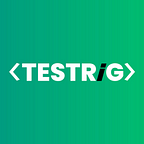How to Choose the Right Automation Tool for Web Application?
Depending on your projects and your QA team’s nature, your choice of automation testing tool must be compatible with many different aspects, such as project scope and requirements, in addition to its reputation. The best tool available does not guarantee the best testing outcome. It must be the right one.
According to recent industry reports, over 70% of software development teams prioritize selecting automation testing tools based on their compatibility with project scope and requirements. Additionally, studies indicate that nearly 60% of QA professionals believe that choosing the right tool significantly impacts the overall effectiveness of their testing efforts.
Choose the Right Automation Tool, Not the Best One
Regardless of these advantages, test automation does not work the same for all projects. While many QA, teams have benefited from automation, other companies have wasted time, effort, and financial resources in implementing automation tools.
Automation testing success primarily lies in identifying the right tool for different needs and demands. This process takes time and effort at first, but it is a must for your team to automate tests efficiently in the long run.
Types of Automation Tools:
- Open-Source Automation Tools: These tools, such as Selenium, offer users the flexibility to create and modify code according to their requirements. With a vast community of developers contributing to their improvement, open-source tools provide freedom and customizability, making them highly sought after in the testing community.
- Commercial Automation Tools: Designed for commercial use, tools like Tosca offer advanced features and support systems. However, they come with registration and licensing costs, making budget considerations essential when opting for commercial automation solutions.
Define your Needs and Test Requirements
Always remember that not all projects need test automation. Therefore, first identify your testing needs and make sure that you really need automation for your website. Ask yourself the following questions. The higher the Yes number, the closer you are to automation.
- Do you have a lot of iterative test cases to do?
- How often do you have regression testing to do?
- Do you need to simulate many users to test performance?
- Do you think the UI is obviously stable?
- Do you have important features in your app that you can’t just rely on manual testing for?
These are some of the toughest criteria for test automation tools. QA professionals need a good knowledge of their projects to identify them correctly.
Criteria for Selection of Automated Testing Tools
When selecting an automated testing tool for website testing, several key criteria must be considered to ensure the tool meets the specific needs and requirements of your project. Here’s a detailed explanation of each criterion:
- Are there technical experts available who can quickly learn to use these tool
It’s essential to assess the proficiency of your team in learning and utilizing new tools. Consider the learning curve associated with the automation tool and whether your team possesses the necessary skills to adapt quickly. If expertise is lacking, allocate resources for training and upskilling to ensure efficient utilization.
2. Do you have the necessary budget?
Evaluate your budgetary constraints, including upfront costs like licensing fees and ongoing expenses such as maintenance and support. Assess the return on investment (ROI) of the automation tool by weighing its benefits against costs. Ensure the tool provides sufficient value and aligns with your budgetary limitations.
3. What features does this tool offer?
Every tool, regardless of its intended use, should always provide the following features.
- Cross-platform support;
- An applicable application is being tested;
- Supports multiple programming languages;
- CI/CD integration capability;
- Various reporting features.
4. What about code maintenance and reusability?
Evaluate the tool’s capabilities for code maintenance and reusability to ensure long-term sustainability of testing efforts. Look for features facilitating modularization and abstraction, allowing creation of reusable test components and libraries. Consider the ease of updating and maintaining test scripts as applications evolve.
5. Does it offer CI/CD capabilities?
CI/CD capabilities are crucial for integrating automated testing into software development pipelines. Ensure the tool integrates smoothly with CI/CD processes, enabling automated testing to be triggered automatically as part of build and deployment workflows. CI/CD integration facilitates faster feedback loops, shorter release cycles, and more reliable software releases.
6. What kind of support is available?
Assess the level and quality of support provided by the tool’s vendor. Look for prompt and knowledgeable technical support, comprehensive documentation, training resources, and active community forums. Reliable support services ensure users can overcome obstacles encountered during testing and maximize tool benefits for software development projects.
Explore our comprehensive list of the Top 10 Best Automation Testing Tools, carefully curated to help you find the perfect fit for your website testing needs. From open-source favorites like Selenium to cutting-edge commercial solutions, discover the tools that can revolutionize your testing processes and elevate your software quality. With the right automation tool in hand, you can ensure faster releases, improved efficiency, and enhanced user satisfaction.
End Note:
The process of evaluating and selecting automation tools can be both challenging and rewarding, especially when considering Automation Testing services. Once you identify the optimal tool, you can harness the power of test automation to achieve superior results with minimal effort. The criteria outlined above are invaluable in guiding you towards finding the most suitable tool for automating your website testing. While Selenium and JMeter remain popular choices for various needs, it’s essential to stay open to new entrants in the market. Regularly comparing offerings ensures you make informed decisions and adapt to emerging technologies effectively.
